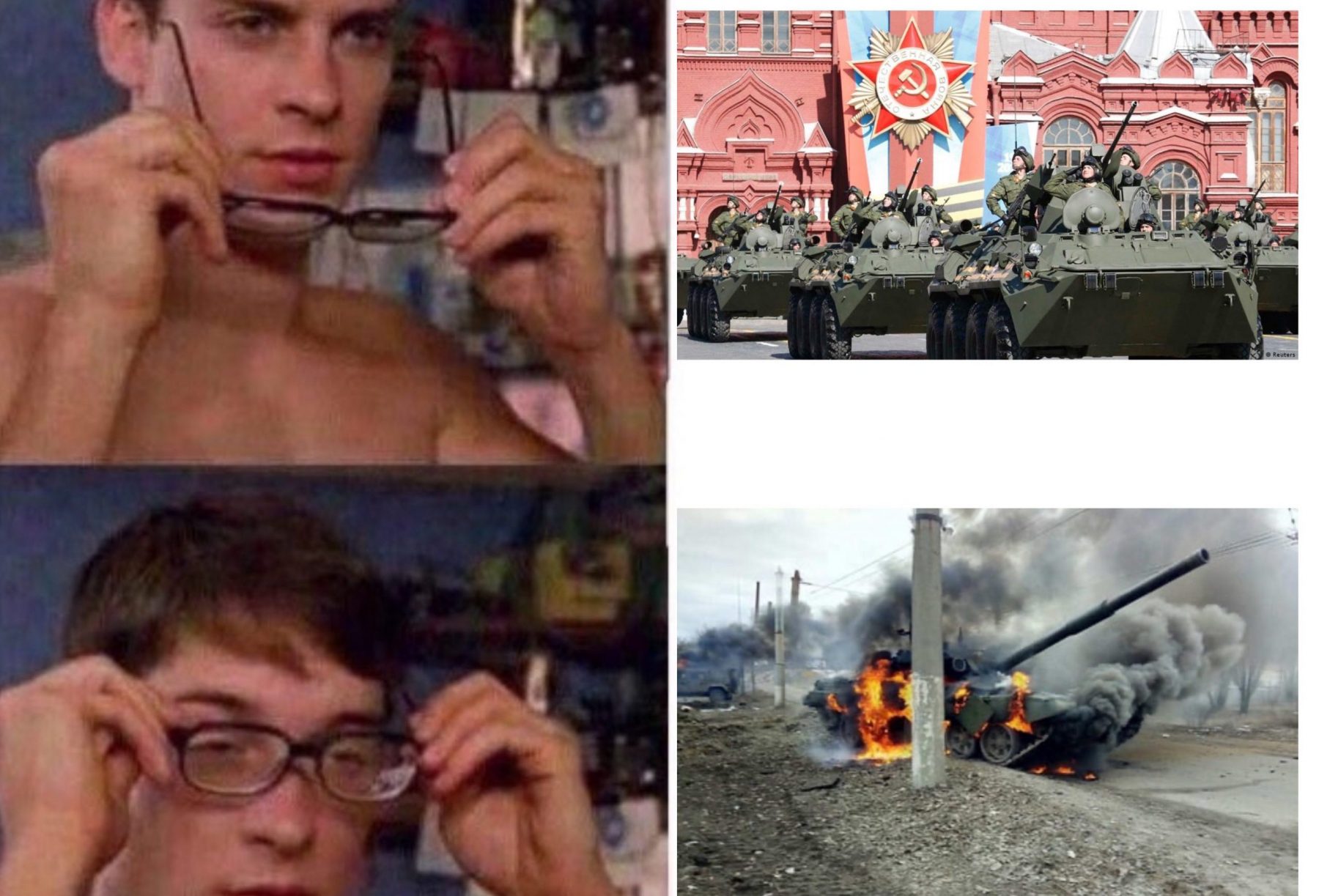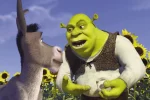Internet meme culture can be traced back to as early as 1996 and has only grown in popularity since. For the more chronically online groups such as millennials and Gen Z, memes have become a way to communicate a short-form message — serious or not — in a humorous way. At a time when many social media platforms limit the number of characters allowed per post, memes take the place of words to deliver commentary in an accessible, easy-to-understand way.
People born in time to feel the consequences of 9/11 find themselves living in a particular historical timeline that includes the 2008 global financial crisis, the COVID-19 pandemic and Russia’s recent invasion of Ukraine.
While many of these memes serve a surprisingly informative purpose — like those on TikTok’s @bikini.bottom.news, which is currently giving out real-time updates on Ukraine’s situation — the use of memes also undermines the significance of a situation. Finding out that Russia invaded Ukraine from a talking fish dressed as a news reporter isn’t as funny as the creator might think it is, but it definitely speaks to the widespread desensitization of tragic news.
Using dark humor to cope during difficult times is totally fine when done in good taste. However, with a news feed saturated with a constant stream of negative coverage, many are quick to turn to memes as a way to find humor in the pain, while at the same time unknowingly desensitizing themselves to future events. Post-COVID-19, post-Texas power grid failure and most recently, the war going on in Ukraine, the internet has once again turned to dark humor. But where do these jokes made at Ukraine’s expense land between good fun and a complete disregard for the severity of the situation?
Early Toxic Meme Culture
Memes are the internet’s version of inside jokes, made specifically for groups that are able to understand what they are referencing. Saying that early memes are more wholesome than their modern iterations is a gross overstatement. Most jokes are now geared toward self-deprecation and political takes, which 2000s dark internet humor was anything but.
4chan, an image-based online forum, was a pioneer in early internet meme culture, followed by iFunny, Imgur and Reddit, the last of which still receives consistent traffic while the first two have decreased in popularity because of their problematic nature and declining quality. One thing to take into consideration is that meme culture will always be toxic to some degree — there will always be outliers in any group on the internet. Despite the continued use of Reddit and 4chan more than 10 years later, both platforms have had their fair share of online scandals and cancellations.
Within these platforms exists meme sub-cultures that focus on niche topics not well known by the general internet population even after so many years. Reddit goes as far as to create “subreddits” dedicated to trolling its more problematic user base, for example, groups with extreme beliefs such as incels, anti-feminists or TERFS. On the flipside, 4chan is the least forgiving of the platforms — it takes trolling to another level, spawning websites dedicated to the objects of their ridicule. Its spiritual successors include Kiwi Farms (formerly known as CWCki forums, a site used to document the life of Sonichu author, Chris-Chan) and its darker counterpart, 8Chan.
Compared to modern forms of trolling, early meme culture was arguably more based on the harassment of others, but was equally as harmful as modern meme culture.
Modern Toxic Memes
Hubs of meme culture now shoot out content faster than the internet can keep up. Viral trends, no matter the platform, last no longer than a month, further exacerbated by TikTok’s average video length of 30 seconds, second only to Vine’s six-second limit.
Internet accessibility for younger people is at an all-time high; iPads and TV time are a go-to for busy parents, a long-term distraction for their children in lieu of toys or one-on-one time. Children now are fully immersed in internet culture and grasp it in a way that no other generation before them can. As a result, there is a disconnect between reality and the online world that has fully leaked into every facet of everyday life. Online, it is easy to hide behind an account when posting questionable content and it is easy to forget that online activities have real-life consequences — that a person’s digital footprint is almost impossible to cover up.
Memes are not inherently bad; they provide a sense of community in groups with a shared interest, but their messages still matter. Being exposed to the internet at such a young age is bound to cause long-lasting effects on a person’s opinion on political, economic and social matters. With that sense of community comes a sort of hive mind mentality; memes are made to appeal to the likes and dislikes of others. In order to keep up with the humor of the group and stay relevant, people begin to shape their views to align with the crowd. One can then turn a blind eye to any problematic memes as they’ve become the norm. The threat of misinformation, the spread of harmful rhetoric or language, and the normalization of self-deprecation to get a few laughs walks closer to the line between humor and the socially unacceptable.
Weeks before Russia invaded Ukraine in late February, Twitter was filled with jokes and memes about the draft, the possibility of World War III and Ukraine’s official Twitter even made a few tweets featuring political memes. However, this was not meant to be funny, but instead aimed to drive home the severity of the situation, comparing Russian president Vladimir Putin to Hitler the day before the invasion, accompanied with the quote, “This is not a ‘meme’, but our and your reality right now.”
Posted on a daily basis, Ukraine’s Twitter account is now using memes to their advantage, removing the language barrier and the worldwide disconnect from the war, interacting with celebrities who voiced their support and boosting global morale through the same outlet used to laugh at them.

















